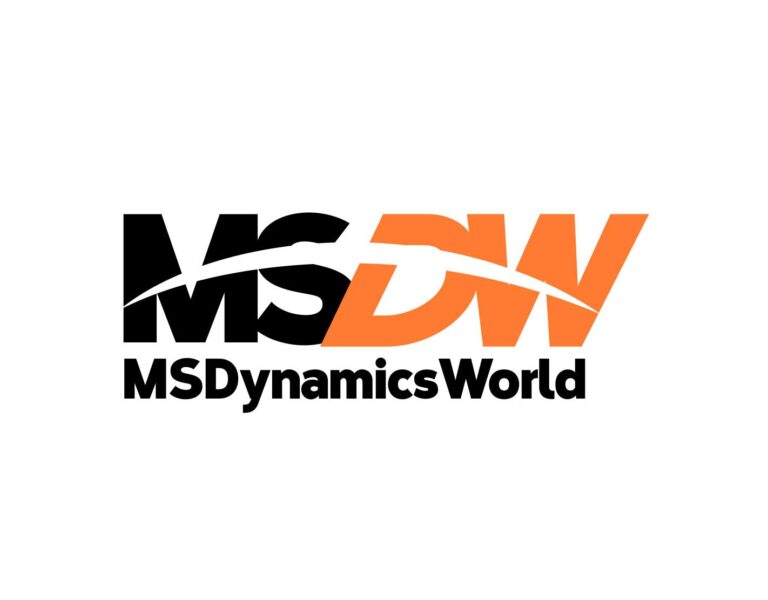In today’s fast-paced business world, companies are constantly seeking ways to improve customer relationships, boost sales, and optimize business processes. A critical tool that has gained widespread adoption is Salesforce, a leading Customer Relationship Management (CRM) platform. According to a 2022 report by Gartner, the global CRM market is expected to reach $80 billion by 2025, with Salesforce continuing to lead the pack. However, like any technology investment, the key question remains: What is the ROI of investing in Salesforce development?
For business leaders evaluating whether to invest in Salesforce development services, understanding the potential return on investment (ROI) is crucial. In this article, we will explore how Salesforce development can drive tangible business outcomes, how businesses can measure ROI, and why partnering with a reputable Salesforce development company can help maximize the benefits.
Why Invest in Salesforce Development?
Salesforce has long been recognized for its flexibility, scalability, and comprehensive suite of tools that help businesses streamline customer interactions, manage sales, and automate workflows. Here are several reasons why businesses are increasingly adopting Salesforce:
- Comprehensive CRM Functionality: Salesforce offers solutions for sales, marketing, customer service, and analytics in a single platform.
- Customization and Flexibility: Salesforce can be tailored to meet the specific needs of different industries and businesses.
- Cloud-Based: Being a cloud-based solution, Salesforce allows for access from anywhere, anytime, without the need for complex on-premise infrastructure.
- Scalable: As businesses grow, Salesforce can easily scale to accommodate increasing data volumes and users.
- Integration with Other Tools: Salesforce can seamlessly integrate with other tools, allowing businesses to create a cohesive technology ecosystem.
The Key Benefits of Salesforce Development for ROI
1. Improved Sales Efficiency and Productivity
Salesforce enables sales teams to manage leads, track opportunities, and automate tasks, leading to improved productivity. By automating routine processes and eliminating manual data entry, sales teams can focus on more valuable activities, such as building customer relationships and closing deals.
- Lead and Opportunity Management: With Salesforce, businesses can manage leads and opportunities from the first interaction to closing. The platform’s automation features ensure that no lead is overlooked, improving conversion rates.
- Real-Time Analytics: Salesforce provides real-time dashboards and analytics, enabling sales teams to track performance and adjust strategies on the fly.
- Collaboration Tools: Features like Chatter allow sales teams to collaborate in real-time, leading to faster decision-making.
By automating processes, businesses can expect higher sales conversion rates, shorter sales cycles, and better customer satisfaction—all contributing to a positive ROI.
2. Enhanced Customer Experience
A satisfied customer is often a loyal one. Salesforce helps businesses provide exceptional customer experiences by offering a 360-degree view of each customer.
- Centralized Customer Data: Salesforce consolidates all customer information into one platform, including purchase history, service requests, and communication logs.
- Personalized Interactions: By using data collected from various touchpoints, businesses can personalize interactions to meet each customer’s specific needs and preferences.
- Omnichannel Support: Salesforce supports multiple channels of communication (email, chat, social media), ensuring that businesses can respond to customers across all platforms.
The ability to provide timely, personalized, and seamless customer experiences results in stronger customer loyalty, repeat business, and positive word-of-mouth—all of which contribute to higher revenue and long-term ROI.
3. Improved Decision-Making with Data Insights
Data is one of the most valuable assets a business can have, but it only becomes useful when analyzed correctly. Salesforce’s powerful analytics and reporting tools help businesses make data-driven decisions, leading to improved performance across departments.
- Custom Reports: With Salesforce, businesses can create custom reports to analyze key performance indicators (KPIs), track sales progress, and identify bottlenecks.
- Predictive Analytics: Using AI-driven insights, Salesforce can help businesses predict future trends, customer behavior, and potential opportunities. This helps in crafting strategies that are more likely to succeed.
- Real-Time Data Access: Decision-makers have real-time access to data, enabling them to respond quickly to emerging opportunities or issues.
With more informed decision-making, businesses can optimize strategies, increase profitability, and reduce costs, which ultimately leads to a higher ROI.
4. Cost Savings through Automation
Salesforce offers a wide array of automation tools that can save time and reduce operational costs. These tools are particularly beneficial for repetitive, manual tasks that can be easily automated.
- Workflow Automation: Tasks such as sending follow-up emails, assigning leads, or creating tasks can be automated, freeing up resources to focus on more critical business areas.
- AI-Powered Features: Salesforce Einstein is an AI-powered tool that enhances productivity by automating data entry, lead scoring, and even customer service tasks.
- Streamlined Processes: Automation across departments reduces human errors and ensures consistency in service delivery.
By reducing the time spent on manual processes and minimizing human errors, businesses can lower operational costs, improve efficiency, and increase profitability.
5. Scalable Growth and Flexibility
As businesses grow, so do their needs. Salesforce is highly scalable, allowing businesses to add new features, users, and processes as needed without disrupting existing operations.
- Modular Add-Ons: Salesforce offers a wide range of add-ons (Sales Cloud, Service Cloud, Marketing Cloud, etc.) that businesses can integrate to meet their evolving needs.
- Custom Solutions: Salesforce Development Services allow businesses to create custom applications or modify existing ones to align with their unique requirements.
- Third-Party Integrations: Salesforce can integrate with a variety of third-party applications, including accounting systems, marketing platforms, and customer service tools.
As businesses grow and adapt, Salesforce provides the flexibility to scale, ensuring that technology continues to support business operations and growth without requiring significant investments in new systems.
Measuring the ROI of Salesforce Development
Now that we’ve outlined the key benefits, it’s important to understand how to measure the ROI of Salesforce development. Here are some metrics that businesses can use to gauge the success of their Salesforce implementation:
1. Increased Revenue
By automating sales processes, improving customer retention, and enhancing lead management, Salesforce can help increase revenue. A good metric to track here is the Sales Conversion Rate, which measures how many leads turn into paying customers.
2. Cost Reduction
Automation and improved operational efficiency can lead to significant cost savings. Businesses should track Operational Cost Reduction and Cost Per Acquisition (CPA) to assess the financial impact of Salesforce.
3. Customer Retention Rates
One of the most important benefits of Salesforce is its ability to enhance customer satisfaction. Businesses can measure Customer Retention Rate or Net Promoter Score (NPS) to assess how well Salesforce helps retain and satisfy customers.
4. Employee Productivity
Salesforce increases employee productivity by automating routine tasks and improving collaboration. Metrics such as Employee Efficiency and Time Spent on Manual Tasks can provide insight into how much time and effort Salesforce saves.
5. Return on Investment (ROI)
The most straightforward measure of Salesforce’s ROI is the Revenue-to-Cost Ratio. To calculate this, businesses can compare the increased revenue, cost savings, and efficiency improvements to the costs associated with implementing Salesforce (including development, training, and maintenance).
Why Choose a Salesforce Development Company?
While Salesforce provides a powerful out-of-the-box solution, businesses often need customizations to tailor the platform to their unique needs. This is where a Salesforce development company can provide significant value. These companies offer specialized expertise to ensure that your Salesforce solution is fully optimized and aligned with your business goals.
- Custom Development: A Salesforce development company can build custom applications, workflows, and integrations that meet your specific business requirements.
- Expertise: Developers with specialized knowledge of Salesforce can help implement best practices, ensuring the platform is used effectively.
- Ongoing Support: Salesforce development companies provide ongoing maintenance and support, ensuring that your solution remains up-to-date and continues to deliver value.
- Faster Implementation: With experience and a proven track record, an experienced Salesforce development services provider can reduce the time it takes to implement Salesforce, accelerating the time to value.
Conclusion
Investing in Salesforce development offers substantial ROI by improving sales efficiency, enhancing customer experience, enabling data-driven decision-making, and reducing costs through automation. By measuring key metrics such as revenue growth, customer retention, and operational efficiency, businesses can clearly see the financial benefits of implementing Salesforce.
Partnering with a skilled Salesforce development company can ensure that your Salesforce solution is customized to meet your unique needs and that you maximize the full potential of the platform. With Salesforce, businesses can not only streamline operations but also drive growth, enhance customer relationships, and achieve long-term success.
Investing in Salesforce development is not just a technological upgrade; it is a strategic move that can propel your business toward greater efficiency, profitability, and scalability.







